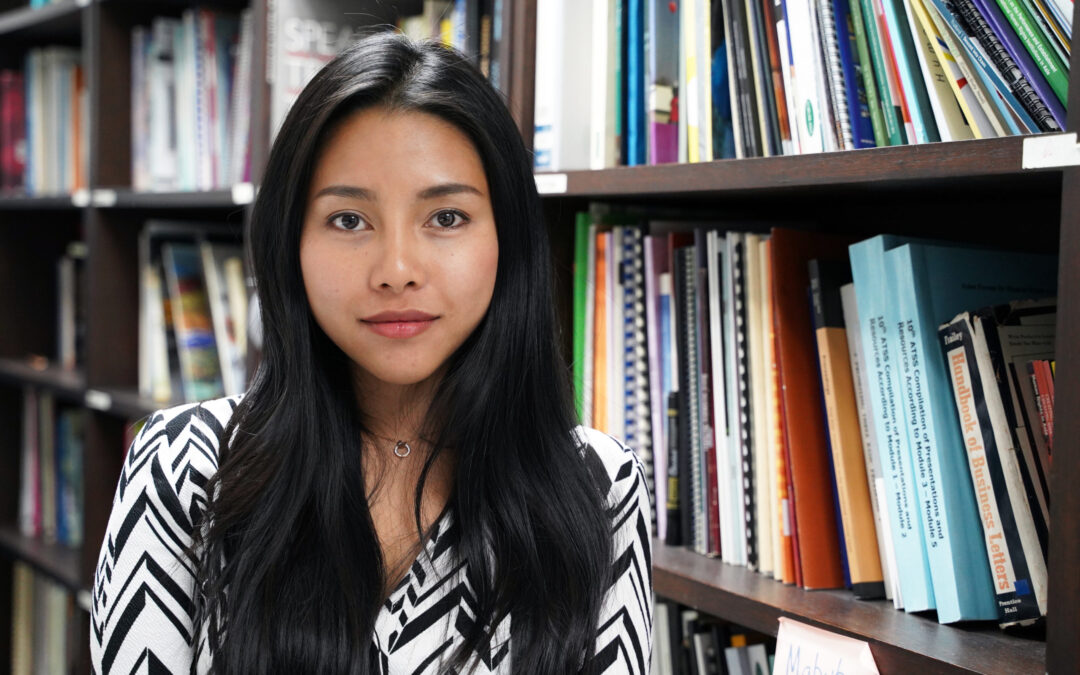
Apr 27, 2020 | News
Today, the ICJ and Lawyers’ Rights Watch Canada (LRWC) jointly submitted a legal brief (amicus curiae) to the Court of Appeal in criminal defamation proceeding against Thai journalist Suchanee Rungmuanporn (Cloitre).
The journalist is being charged after making a post on Twitter highlighting labour rights violations by Thammakaset Company Limited. The post detailed an order by Thailand’s Court of Appeal for Specialized Cases for Thammakaset to provide compensation to its 14 former employees from Myanmar, with the word “slavery” included in the post. This inclusion is the basis for defamation claim.
On 24 December 2019, Suchanee was sentenced to two years’ imprisonment by Lopburi Provincial Court.
The intervention reviews the nature and scope of Thailand’s international legal obligations relating to the right to freedom of expression. It makes clear that the imposition of harsh penalties such as imprisonment has a “chilling effect” on the exercise of freedom of expression, which Thailand is bound to protect pursuant to its international legal obligations. It particularly undermines the work of journalists and human rights defenders seeking to bring to light these violations and whose activities must be protected.
The brief underscores that under international law and standards, criminal sanction involving imprisonment must never be imposed for defamation.
Criminal defamation, under sections 326 of the Criminal Code, carries a maximum sentence of one year of imprisonment, a fine of up to 20,000 Baht (approx. USD 640) or both. Section 328 criminalizes defamation “by means of publication” with up to two years’ imprisonment and a fine of up to 200,000 Baht (approx. USD 6,400).
This case is one of 36 cases brought by Thammakaset against several individuals who have expressed views and conducted advocacy on or released information relating to labour rights violations alleged to have been committed by Thammakaset. These include criminal defamation complaints against human rights defenders, including Mr. Nan Win, Ms. Sutharee Wannasiri, Ms. Ngamsuk Rattanasatiean, Ms. Angkhana Neelapaijit, Ms. Puttanee Kangkun, and Ms. Thanaporn Saleephol.
Download
Legal brief (amicus curiae) to the Court of Appeal in Thai and English.
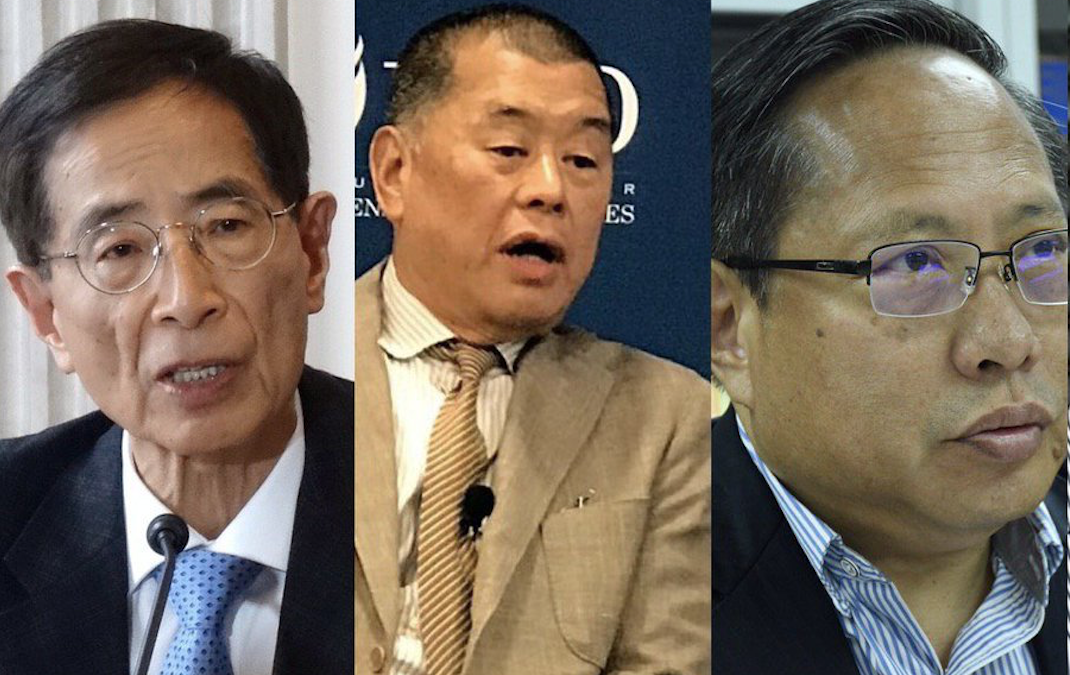
Apr 18, 2020 | News
Today the ICJ joined other legal organizations in condemning the arrest of 15 pro-democracy figures in Hong Kong for organizing and taking part in ‘unauthorized assemblies’ in 2019. The arrests demonstrate the continued assault on the freedom of expression and the right to assembly in Hong Kong.
The joint statement reads:
The international legal community is seriously concerned by the arrest of 15 veteran pro-democracy figures in Hong Kong on Saturday 18 April 2020. In what appears to be a further clampdown on civil liberties and democracy following the 2019 protests, which began over the introduction of a controversial extradition bill, those arrested today include senior figures in the pro-democracy movement. These include lawmakers, party leaders and lawyers such as the democratic politician and legislator, Martin Lee QC who was also involved in the drafting of the Basic Law, the media owner, Jimmy Lai, and the barrister, Dr Margaret Ng. In October of last year, Margaret Ng and Martin Lee were jointly awarded the International Bar Association’s Human Rights Award for their lifelong defence of freedom, democracy and the rule of law.
The arrests are purported to be based on suspicion of organising and taking part in ‘unauthorised assemblies’ on 18 August, 1 October and 20 October 2019, pursuant to the Hong Kong SAR Public Order Ordinance. No explanation has been reported for the apparent delay between those protests and the timing of today’s arrests. The leaders of the Hong Kong pro-democracy movement have long argued for their rights to peaceful assembly and protest to be exercised without the need for consent from the authorities.
The right to peaceful protest is protected under the Joint Declaration and the Basic Law. As part of the ‘One Country, Two Systems’ policy, the Hong Kong Basic Law guarantees freedoms that are not available to those in mainland China until 2047. Hong Kong residents are guaranteed the rights to ‘freedom of speech, of the press and of publication; freedom of association, of assembly, of procession and of demonstration’. Article 21 of the International Covenant on Civil and Political Rights (“ICCPR”) provides that “[t]he right of peaceful assembly shall be recognised.” The Basic Law expressly preserves the ICCPR as applicable to the Hong Kong Special Administrative Region. The State has a duty to protect and facilitate such protest, and the Public Order Ordinance must be implemented in conformity with Hong Kong’s obligations under the ICCPR.
Following growing concerns of eroding civil liberties and the rule of law in Hong Kong, the 2019 protests have been unprecedented in their scale and reach and have led to physical violence by authorities, as well as a regrettable violent response by a minority of demonstrators. Excessive crowd dispersal techniques have been used by the authorities, including the dangerous use of tear gas, water cannons, firing of rubber pellets, pepper spray and baton charges by the police to disperse pro-democracy demonstrations, and there is reliable evidence of violence upon arrest. No proper investigation into excessive force has taken place and indeed calls from the international community, including the United Nations High Commissioner of Human Rights, have been rejected.
Today’s arrests demonstrate the continued assault on the freedom of expression and right to assembly in Hong Kong. Indeed, we are gravely concerned that the arrests of senior lawyers and legislators who set out to protect human rights in a non-violent and proportionate manner, and pursuant to both rights granted in both domestic and international legal frameworks, represent an assault on the rule of law itself. The United Nations Human Rights Committee has repeatedly expressed concern that charges of ‘unlawful assembly’ against peaceful protesters in Hong Kong risks violating human rights. The arrest of a prominent media owner also sends a chilling message to those whose journalism is vital to a free society.
It is critical that authorities do not use their powers to encroach on fundamental human rights, and it is vital that legal systems continue to protect citizens from any abuse of power which may otherwise be unseen during the COVID-9 crisis in which the international community is submerged..
We strongly urge the Hong Kong authorities to immediately release the 15 individuals arrested and drop all charges against them. Moreover, we call on the authorities to discontinue such politicised and targeted prosecutions immediately and urge the Hong Kong government instead to engage in constructive dialogue with the leaders of the pro-democracy movement to foster a climate in which their legitimate concerns over democracy and human rights can be met.
To download the statement with more information and list of organizations, click here.
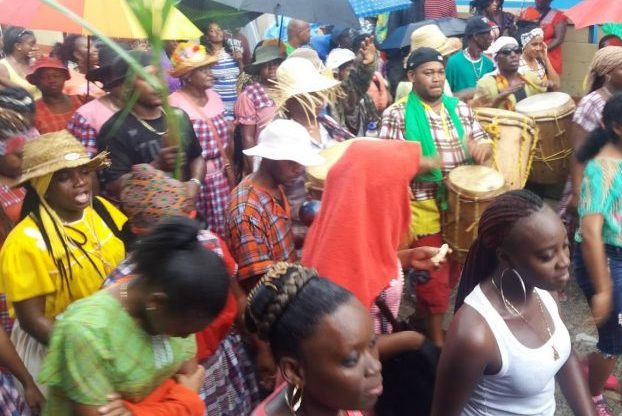
Apr 3, 2020 | Comunicados de prensa, Noticias
Miles de personas pertenecientes a los Pueblos Indígenas de Guatemala (Mayas, Garífunas y Xincas), corren el riesgo de ser víctimas de la pandemia COVID-19, si el Gobierno no les provee, de manera inmediata, la información necesaria y les asegura el acceso a un adecuado servicio de salud, sin discriminación, afirmó hoy la CIJ.
“Los Pueblos Indígenas de Guatemala, enfrentan el riesgo de sufrir los efectos destructivos de la pandemia COVID-19, debido a la discriminación histórica y sistemática en su contra; lamentablemente, en la actual crisis, los Pueblos Indígenas no tienen acceso a información clara y sencilla, para saber cómo protegerse de la pandemia y cómo ser protegidos durante la emergencia, por el Sistema de Salud”, afirmó Ramón Cadena, Director de la CIJ para Centroamérica.
“Las comunidades indígenas que más podrían sufrir los efectos de la pandemia, son aquellas que sufren el abandono absoluto del Estado de Guatemala y viven en extrema pobreza en la frontera con México en el norte y occidente del pais”, añadió.
La CIJ requirió a las autoridades del Gobierno de Guatemala, que garanticen que fluya información clara sobre medidas concretas de salud pública, en los idiosmas Mayas (Ixil, Quiché, Mam, Q´eqchí, Kakchiquel, Canjobal, Chuj y otros), así como en los idiomas Garífuna y Xinca.
Durante la pandemia, el Estado de Guatemala no ha tomado en cuenta las dificultades (financieras, geográficas, tecnológicas y barreras lingüisticas) que enfrentan los Pueblos Indígenas, en lo que respecta al acceso a la información. Por el otro lado, la CIJ ha observado que la información sobre las medidas gubernamentales para enfrentar la pandemia, ha sido comunicada en forma muy limitada.
Los Pueblos Indígenas han sido excluidos del Sistema Oficial de Salud, por la discriminación de que son objeto y por la falta de recursos gubernamentales que se invierten en el Sistema de Salud, luego de los procesos de privatización de los servicios sociales, que se han venido implementando a partir de la firma de los Acuerdos de Paz.
“La debilidad del Sistema de Salud Pública, la prevalencia del racismo existente desde siglos atrás y la marcada desigualdad que sufren los Pueblos Indígenas, agravan aún más el impacto potencial que el Corona virus y la pandemia podrán tener en los Pueblos Indígenas”, afirmo Cadena.
La CIJ insta al Estado de Guatemala a tomar las medidas legislativas, administrativas y judiciales necesarias para preservar los derechos humanos de los Pueblos Indígenas durante la presente emergencia y específicamente, para preservar el derecho a la salud, a la alimentación y a la vivienda; asímismo, para garantizar una vida digna a los Pueblos Indígenas, libres de cualquier amenaza a sus derechos civiles y políticos.
“Todas las medidas que el Gobierno implemente para mitigar los efectos de la pandemia, deben ser estrictamente necesarias, legítimas, proporcionadas y temporales”, afirmó Cadena.
“Hay algunas garantías como el derecho a la Reparación y el Derecho de Acceso a la Justicia, que no pueden limitarse ni suspenderse en ninguna circunstancia, ya que son vitales para que las y los ciudadanos, incluidos los Pueblos Indígenas, puedan defender sus derechos. Tomando en cuenta que la presente pandemia afecta el Sistema Legal en diferentes formas, el Gobierno de Guatemala tendrá que tomar medidas específicas para evitar la discriminación en contra de los Pueblos Indígenas y para garantizar el Derecho de Acceso a la Justicia, durante la pandemia”, finalizó Cadena.
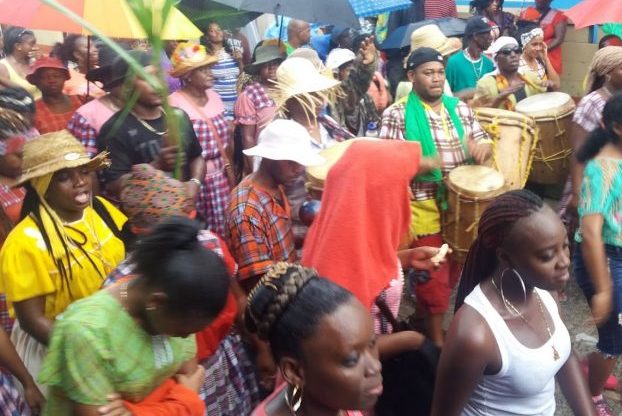
Apr 3, 2020 | News
Millions of indigenous people in Guatemala (Mayas, Garífunas and Xincas) are at increased risk of falling victim to COVID-19 unless the government immediately provides them with necessary information and ensures they have access to adequate health care without discrimination, the ICJ said today.
“Guatemala’s indigenous people face an increased risk of suffering during this global pandemic because of the historic and systemic discrimination against them, which means that they don’t have access to proper information needed to protect themselves, nor to health care should they fall ill because of COVID-19,” said Ramón Cadena, ICJ’s Central America Director.
“The most suffering indigenous communities could be those very poor indigenous communities living at the border with México.”
The ICJ called on Guatemalan authorities to ensure that information about public health measures regarding COVID-19 be offered in the languages most used by indigenous communities (mayan languages such as ixil, quiché, mam, q´eqchí, kaqchikel; and garífuna and xinca languages).
During the pandemic the State of Guatemala has not taken into account the difficulties, such as financial, geographical, technological or linguistic barriers, that indigenous people face in accessing information.
On the other side, the ICJ has noticed that the information about the governmental measures to face the pandemic, has been disseminated in a very limited way.
Indigenous communities have been excluded from the official health system because of the discrimination against them and the lack of resources invested in the health system of Guatemala due to processes of privatization of social services, which have been implemented in Guatemala after the signature of the Peace Accords.
“The general weakness of the Guatemalan public health system, historic racism against the indigenous community and the tremendous general social inequality in the country all aggravate the potential impact of the pandemic on the indigenous community,” Cadena said.
The ICJ urges the State of Guatemala to take the necessary legislative, administrative, and judicial measures to protect Indigenous Peoples and preserve their human rights during the current emergency, specifically their right to health, food, and housing.
The ICJ also called on the Guatemalan government to avoid measures that threaten the life and dignity of people, including those from the indigenous community who are generally most subject to violations of their civil and political rights.
“Any measures taken in response to the pandemic must be limited to those that are strictly necessary, legitimate, and proportionate to the risk facing the community, and limited in time and subject to review,” Cadena said.
“There are certain guarantees, such as the right to an effective judicial remedy, that cannot be suspended or repealed and that are vital so that citizens, including indigenous people, can safeguard their rights, and even as the pandemic inevitably affects the legal system the government must do all it can to avoid discrimination against the indigenous community, which already suffers from racism and lack of access to justice.”
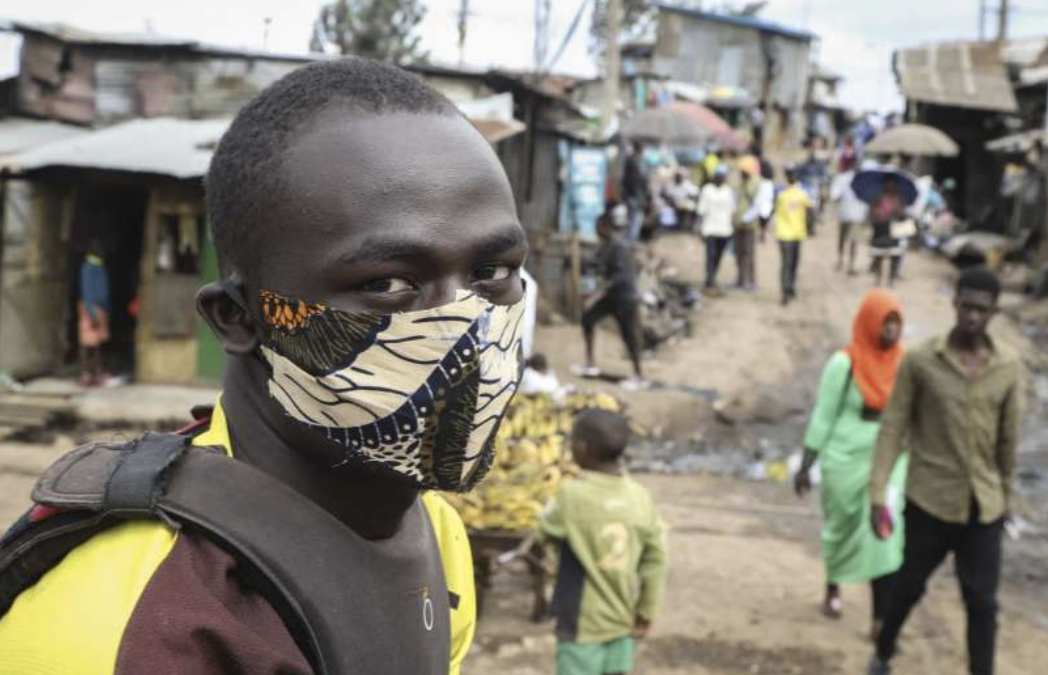
Mar 27, 2020 | News
The ICJ today called on the responsible authorities to adopt urgent measures to ensure the equal protection of the right to health and life of the country’s inhabitants in the wake of the growing COVID-19 pandemic.
The call came amidst indications that official response has been inadequate and poorly conceived.
Although Zimbabwe has only three officially confirmed COVID-19 cases and one casualty so far, the true figures are likely to be higher.
Media reports indicate that the health care facilities designated to deal with COVID-19 cases are severely under equipped. Doctors and nurses have announced that they are withdrawing their services because government is failing to provide them with protective clothing such as masks and gloves.
“The ICJ is deeply concerned by the poor state of preparedness of the Zimbabwean Government to handle COVID-19 cases,” said Arnold Tsunga, ICJ African Programme Director.
“The COVID-19 pandemic has brought to the fore cracks in health systems and presented governments everywhere with unprecedented challenges. The government’s response should however remain steeped in obligations espoused in the Constitution and international legal instruments to which Zimbabwe is a party,” he added.
The ICJ called on the Government of Zimbabwe to take urgent measures, include those aimed at ensuring that its healthcare system can provide for adequate screening, testing and care for COVID-19 patients.
The ICJ said that the Government must also investigate reports of the mishandling of patients, increase transparency and regular communication with the public and dedicate more resources to dealing with the COVID-19 pandemic.
Background
Zimbabwe announced its first confirmed case of COVID-19 on 21 March. The first casualty was recorded on 23 March. On 25 March 2020, the Ministry of Health and Child Welfare reported that a total of 100 people had been tested for COVID-19. Of these, 96 were negative, three tested positive and one test was found to be inconclusive.
Zimbabwe is a party to the International Covenant on Economic, Social and Cultural Rights (ICESCR), which imposes a duty to protect the right of everyone to enjoyment of the highest attainable standard of physical and mental health. Zimbabwe is also party to the International Covenant on Civil and Political Rights and the African Charter on Human and Peoples Rights, both of which guarantee the right to life.
Pursuant to Section 76 (1) of the Constitution of Zimbabwe, the government must provide access to basic health care services to all citizens and residents. Further, section 76 (3) of the Constitution enjoins government to ensure that no person is denied emergency medical treatment in any health care facility. In addition, government has an obligation, under section 51 of the Constitution, to protect human dignity.
The Committee on Economic, Social and Cultural Rights has set out the minimum standards which must be fulfilled at all times for States that are party to the IECSCR;
- Quality: Heath care facilities should be equipped with necessary equipment and medicine including safe and adequate water, sanitation and skilled medical professionals.
- Availability: Health care facilities with adequately trained and fairly-paid medical personnel and essential medicines should be made available to all.
- Accessibility: Health care facilities should be accessible to all without discriminating. Accessibility also includes physical accessibility, economic accessibility and access to information.
- Acceptability: Health care services should be provided in a manner that complies with medical ethics.
Measures undertaken by the Government of Zimbabwe, in response to the COVID-19 pandemic must adhere to these minimum standards. However, the ICJ has noted the following allegations and reports from credible media sources;
- Gross under-testing of people despite showing most of the COVID-19 symptoms;
- Absence of protective gear for health care workers;
- Lack of training of health care workers on the proper handling of COVID-19 related patients;
- Mishandling/ill treatment of patients at COVID-19 health care centres;
- Absence of equipment such as ventilators and respirators;
- Absence of running water at designated COVID-19 health care centres;
- Insufficient staffing at the designated COVID-19 care and isolation centres, as a result of some doctors and nurses having gone on strike;
- Government is establishing fully equipped COVID-19 health care facilities but exclusively for the political elites and their associates.
Contact:
Arnold Tsunga, Director of the ICJ Africa Regional Programme, t: +263 77 728 3248, e: arnold.tsunga(a)icj.org









